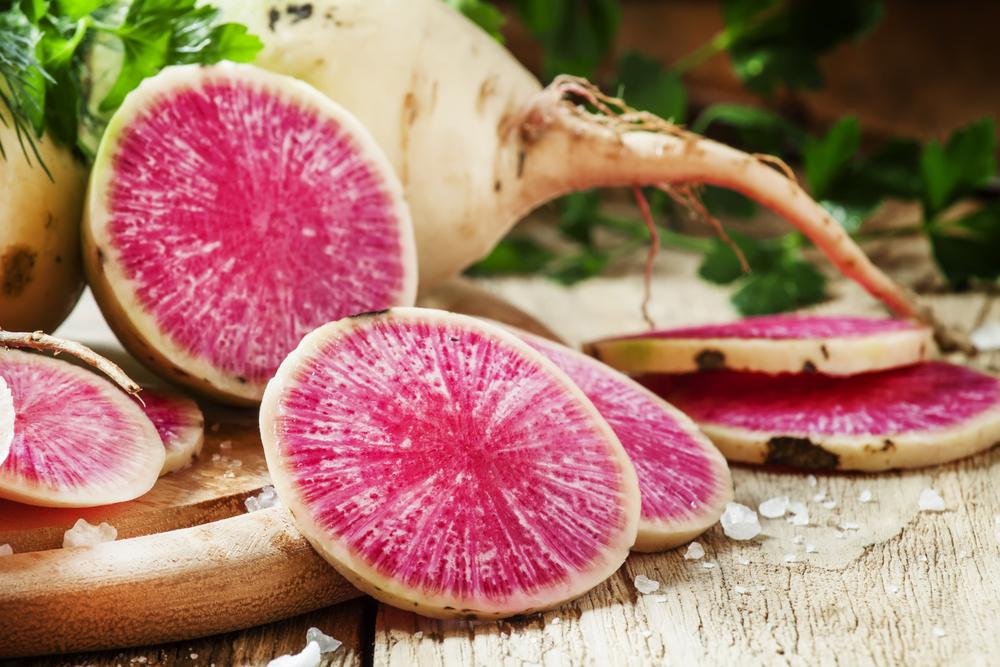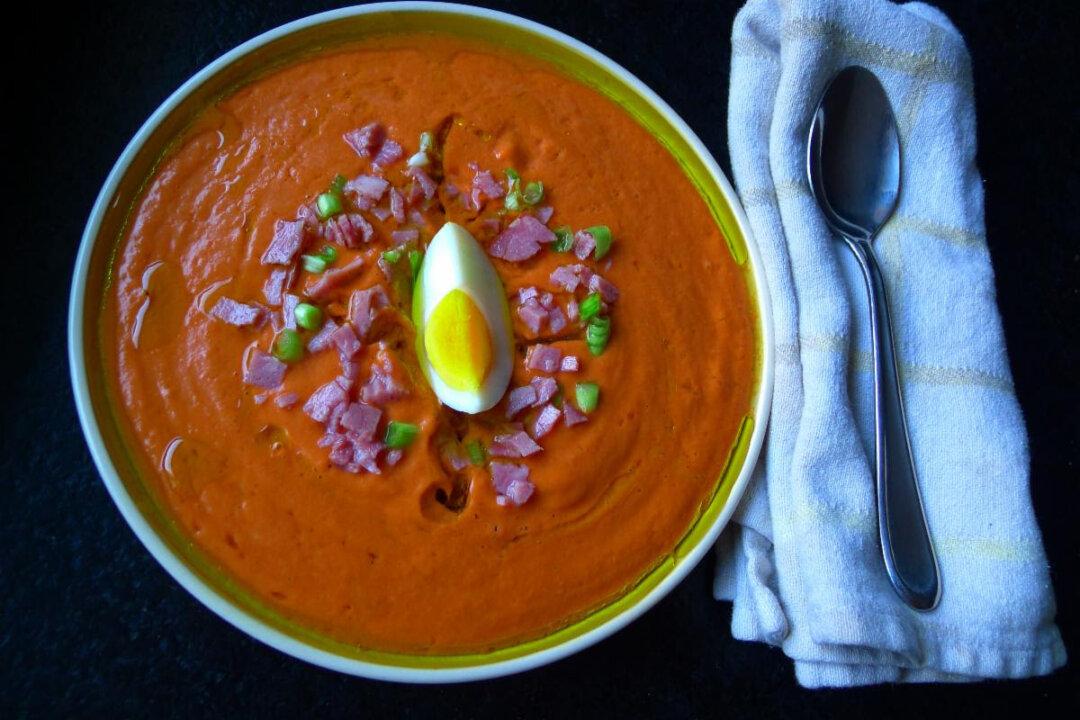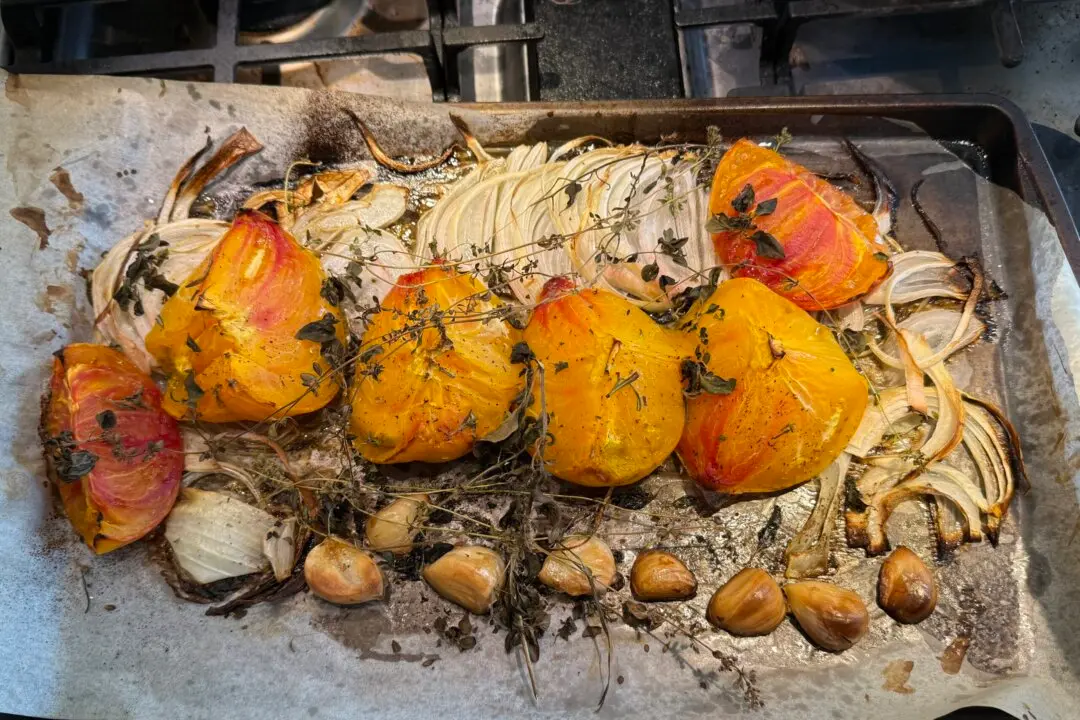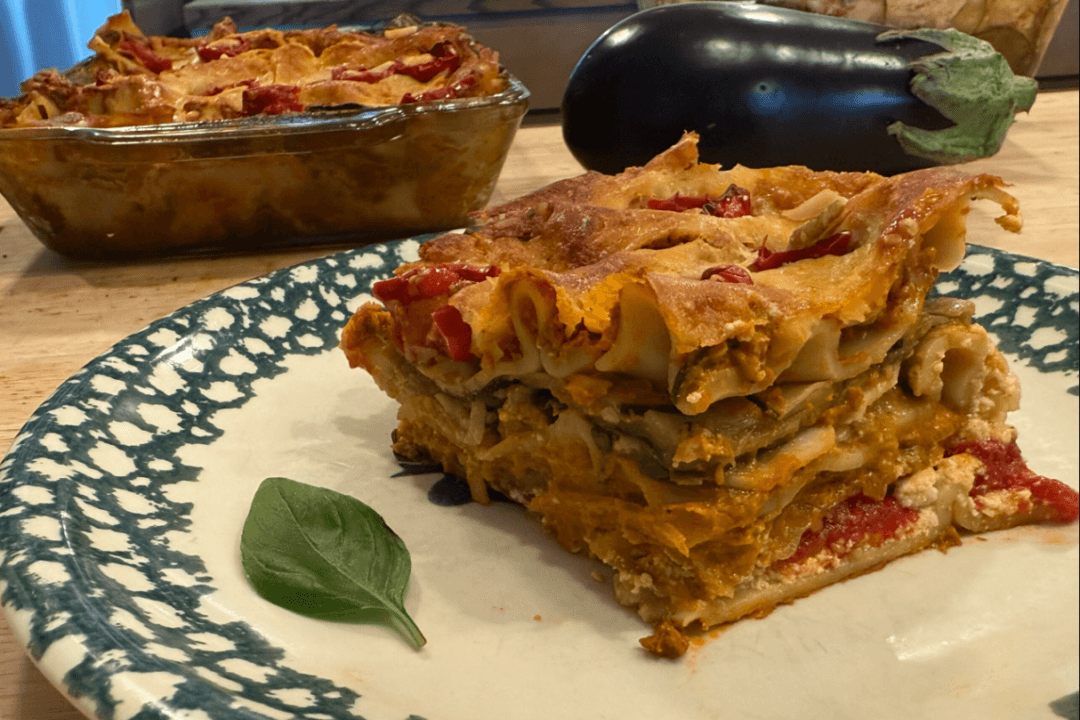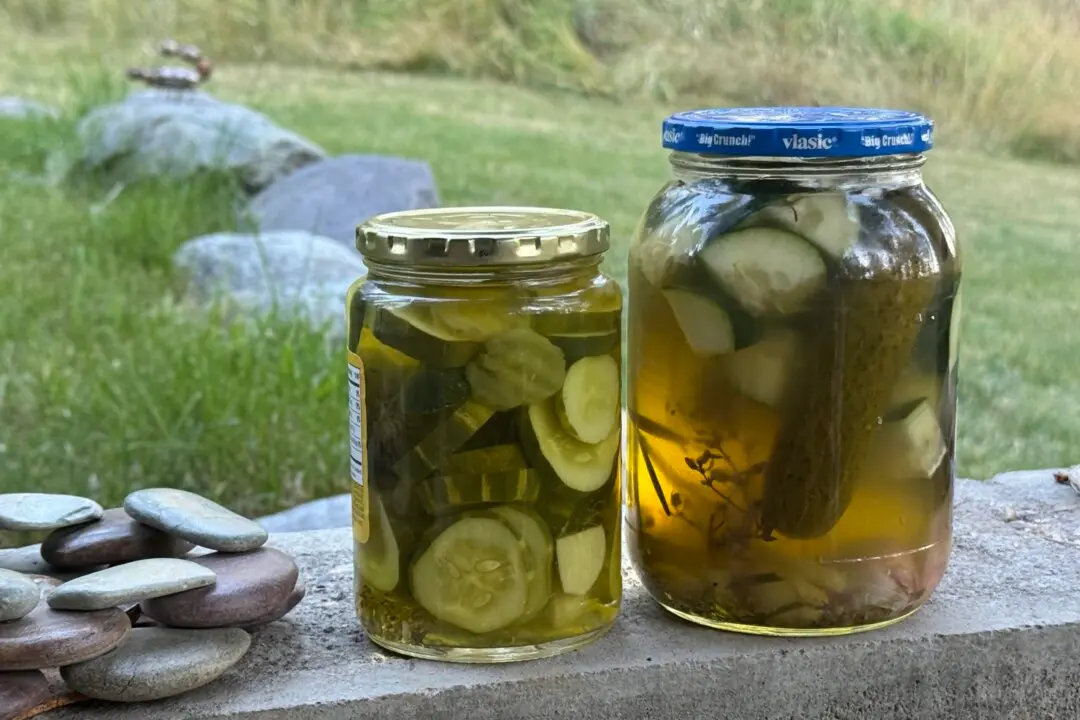At the final farmers market of the summer, I was buying winter melons from a farmer named Nancy. She’s from Northern China and often sells produce I’ve never heard of. After I filled my bag with those obscure winter melons, which taste sweetly like muskmelon, Nancy pivoted smoothly into giving me the hard sell on a tuber the size and shape of a russet potato. She had one left.
It had grown so quickly that its pale green skin was split open, revealing red-pink flesh inside. This root crop was another melon of sorts, an heirloom radish known as watermelon radish.

